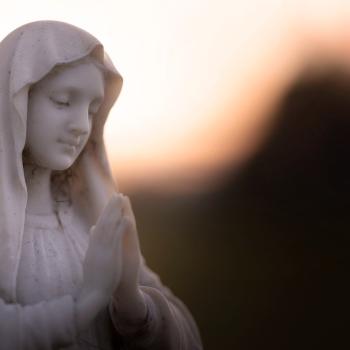This week, in the Masei portion, the text introduces the laws of the cities of refuge. Here, the Jews are instructed to establish six designated cities where a person who kills can be protected from the vengeance of the deceased's family. The law of the cities of refuge captures the ethos of a society in transition, speaking to an ancient tradition of vengeance killing that is on its way out. This law lays out the murky places from where we came and the even murkier places where we are going. Discussing the cities of refuge, Nechama Leibowitz (1905-1997), a modern biblical commentator and teacher, writes, "It perhaps sounds odd to the reader to learn that the commandments in the Torah are not absolute."
The six designated cities of refuge provide asylum for the killer awaiting trial. After the trial, if the killer is convicted of murder, he is executed by the blood-avenger, generally a family member of the victim. On the other hand, if the killer is found to be guilty of manslaughter (accidental killing), the killer is returned to the city of refuge and forced to remain there until the death of the High Priest. If the accidental killer leaves the city, the blood avenger is permitted to kill him:
But if the killer [who killed by accident] will ever leave the border of his city of refuge to which he has fled, and the avenger of the blood shall find him outside the border of his city of refuge, the avenger of the blood will kill the killer—there is no blood for him. (Numbers 35: 26-28)
The text severely limits the right to vengeance by creating a safety zone where vengeance killing is prohibited. However, if the avenger kills the perpetrator outside the city of refuge, the avenger is not punished for the life taken. The avenger is permitted to kill within the parameters of the law. Balancing vengeance with refuge creates an uneasy compromise—a compromise that speaks of a culture in the midst of becoming. Samuel David Luzzato, a biblical scholar and philosopher (1800 - 1865), describes the role of the law of cities of refuge in producing desired cultural change:
The Torah established judges and magistrates, and took avenging out of the hands of individuals, placing it in the hands of the entire community. In case of premeditated murder, the avenger could be assuaged by saying to him: Let the judges handle the matter; they will investigate, and if he deserves to die, they shall put him to death. But in cases of manslaughter, the avenger could not be assuaged and forced to countenance the person who had killed his father or brother going unpunished, for it would seem to him and to all those who knew him that he did not love his father or brother, since he was not avenging their death. Such a view could not be eradicated all at once, therefore Divine Wisdom perceived that if the blood-avenger were to be punished by death for avenging the blood of a relative killed by manslaughter, still this would not prevent all blood-avengers, nor even the majority of them, from avenging their relatives. Thus there would be many people pointlessly killed. Therefore, what did the Torah do? While permitting the blood-avenger to avenge the death of a relative, it established a place of refuge where the manslayer could flee and the avenger could not come and kill him.
When Torah law is understood as a means of social engineering, divine or otherwise, the inherent stability of the law rightfully comes into question. Famously, in The Guide to the Perplexed, Maimonides (1135-1204), a medieval Jewish thinker, writes that animal sacrifices were a means of weaning the Jews off a practice that was common in the ancient world, and that, one day, the Jews will no longer rely on sacrifices for worship. Dozens of chapters in the Torah's text are devoted to the details of animal sacrifices, yet, for Maimonides, the practice is ultimately a transient one, necessary in its day to meet a particular cultural need.
The cities of refuge, like animal sacrifices, belong to an ancient time, long gone for us. Perhaps, it is because of the astounding success of the Torah's social engineering that we can stand before the text today and reverently declare more and more of its laws irrelevant and inapplicable. Our culture has done what the text knew it would—we changed. There is nothing odd about Torah commandments being not absolute. In the law of cities of refuge, we see in the Torah law what all law is in its better moments: a perpetually unstable compromise between what we were, what we are and what we will be.
7/26/2011 4:00:00 AM





